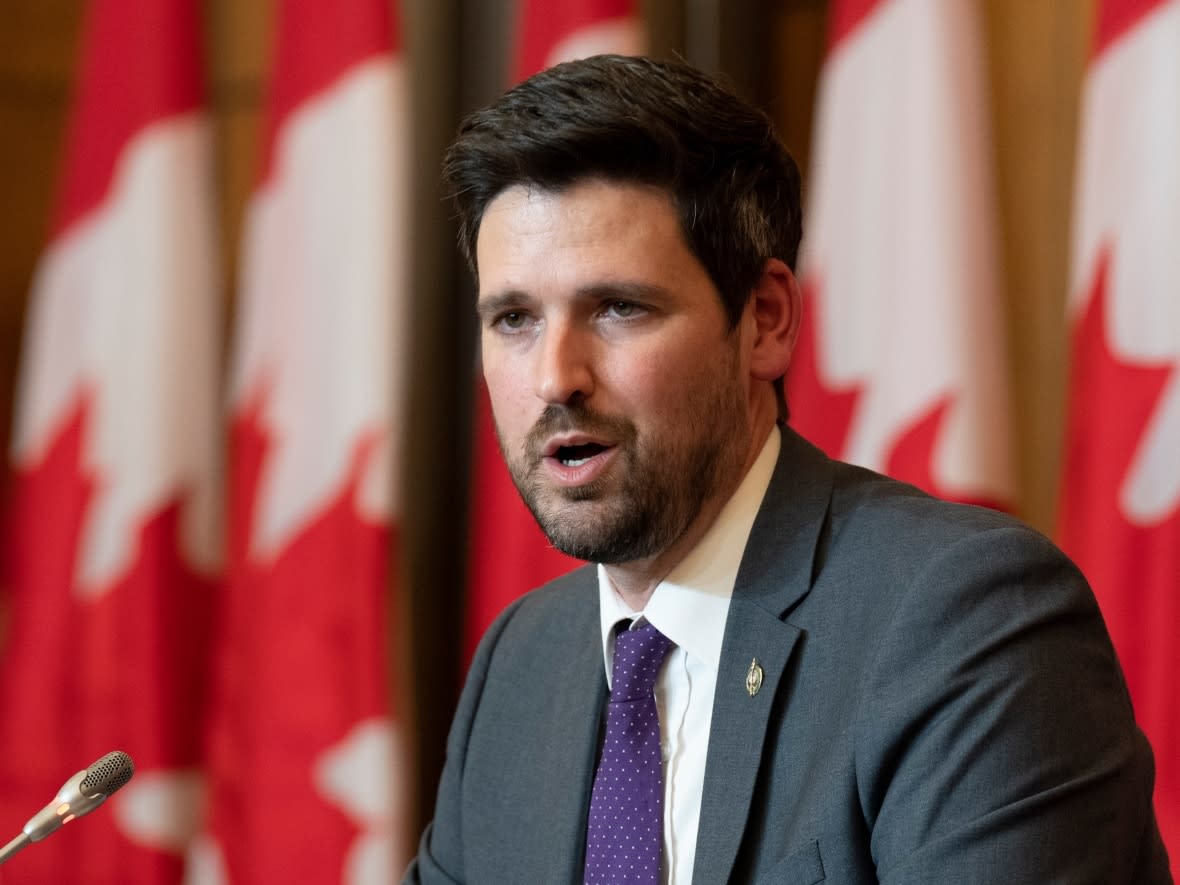Immigration minister says AI isn't making final immigration decisions

Immigration, Citizenship and Refugees Minister Sean Fraser says new technology has greatly accelerated processing times in his department — but he insists that artificial intelligence (AI) isn't making any final decisions on whether an immigration application is approved.
Fraser told a press conference on Friday that Immigration, Refugees and Citizenship Canada (IRCC) has used new "advanced analytics" technology to great effect.
"We use these new technologies across a wide variety of our immigration systems, and what we've seen is massive gains in productivity," Fraser said.
Fraser did not specify the nature of the technology but instead insisted that humans still have a role to play at IRCC.
"Just to dispel any fears that may exist, a human being is still responsible for every final decision," Fraser said.
"It is not possible for an AI system or an advanced analytics system to make a final determination on a person's admissibility or eligibility."
Fraser said a human officer's evaluation is needed "to protect the integrity" of the process.
Fraser's announcement was about the use of the new system for temporary resident visa (TRV) applicants intended to reunite family members in Canada.
Family members seeking permanent residency status in Canada can apply for a temporary visitor's visa to join their sponsor while they wait for their application to be approved. Fraser said such visas are often denied because of the possibility that applicants might not leave once they expire.
The new system uses advanced analytics to identify people who have a permanent residency application in the system and approve their visa to visit Canada more quickly. Fraser said he hopes the turnaround time can now be reduced to as little as 30 days.
"This means that family members will be able to travel to Canada more quickly and be with their loved ones sooner than was previously the case," Fraser said.
The new system will sift through the person's application and determine how likely it is that they will be granted permanent residency. Those with a high likelihood will be put in a category that fast-tracks their temporary visa.
So far, the approval rate for applications under the new system is higher than 98 per cent, Fraser said.
He also announced Friday that spouses and dependent children with temporary visas will be given open work permits, regardless of whether they apply before or after they arrive in Canada.
That means spouses won't have to wait to start working after they arrive in Canada.
"We know it's critical that they're able to support themselves and their families as soon as possible," Fraser said.
Conservative immigration critic Tom Kmiec said the minister's announcement does not go far enough and the minister's numbers on processing times don't align with figures he received from IRCC last month.
"It doesn't address the key issue, which is really long processing times, which are getting longer, not shorter," Kmiec said.
"This department has doubled its staff since 2015 and doubled its budget since 2015. Why can't taxpayers get the results that they're paying for?"

Kmiec said he's hearing from constituents who are waiting up to five years for their spousal sponsorship applications to be approved.
But Will Tao, a Vancouver-based immigration lawyer, said the changes are welcome.
"It's a shake-up for sure," Tao said after the minister's announcement Friday.
"I think it's a good move, in many respects."
The increased use of advanced analytics has raised concerns about the types of data being used to inform machine-based decision-making, and whether such systems could discriminate against some families based on where they're from or other characteristics, Tao said.
"I think that's something needs to be dug into a little bit more, about this idea that it applies the same to everybody, because I think in immigration we know that's not the case," he said. "There are always discrepancies."
Liberal MP calls minister 'Mr. Sexy' at announcement
Liberal MP Hedy Fry raised eyebrows at the event Friday when she introduced Fraser as "Mr. Sexy" and spent much of her speaking time commenting on his looks.
"I'd like to hand the mic over to the Honourable Sean 'Mr. Sexy' Fraser," Fry said.
Earlier in her speech, Fry said Fraser was recently voted "sexiest man on [Parliament] Hill," but did not say who conducted the survey.
Fraser chuckled and hugged Fry on his way to the podium but did not mention Fry's comments.


